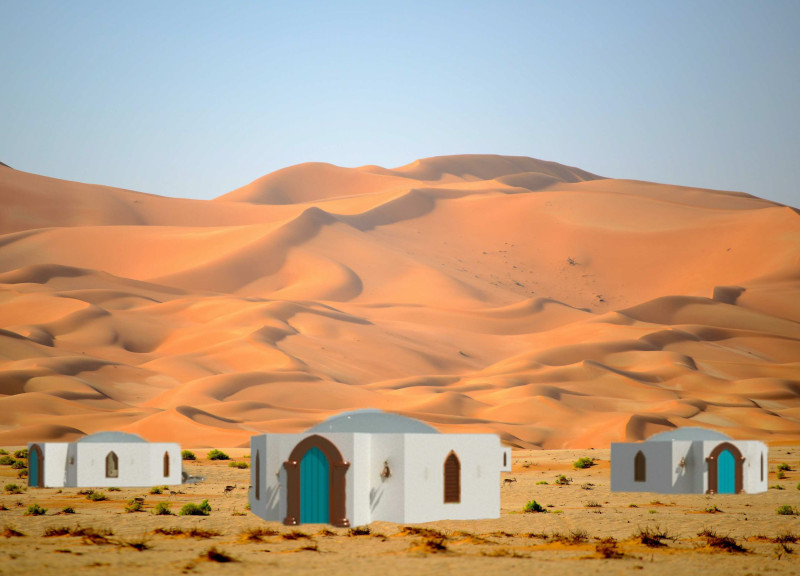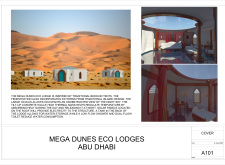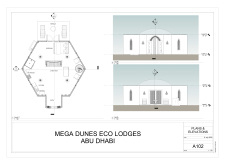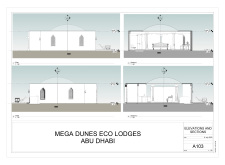5 key facts about this project
From the outset, the project signifies a response to the unique environmental challenges presented by the desert landscape. The architectural design draws inspiration from the tents traditionally used by the Bedouins, utilizing forms that reflect their nomadic lifestyle. The lodges are designed with an octagonal plan that maximizes interior space while minimizing the exterior footprint, emphasizing energy efficiency and sustainability. This approach aligns seamlessly with the goal of providing a space that is both functional and respectful of the surrounding environment.
In terms of function, the Mega Dunes Eco Lodges serve as a hospitality retreat, offering visitors a unique blend of cultural immersion and modern amenities. The lodges provide accommodations that facilitate relaxation and connection with nature, with a layout that encourages both communal gatherings and private moments. By adopting an open interior layout with strategically placed private sleeping quarters, the design promotes social interaction while ensuring guest privacy.
Key architectural details within the project underscore its commitment to sustainable design. The use of tilt-up concrete walls is a notable feature that provides significant thermal mass; this helps regulate internal temperatures by absorbing heat during the day and redistributing it at night. Such material choices are not just functional, but they also represent a commitment to longevity and resource conservation. The integration of solar panels on the rooftops conveys the project's aim for energy independence, harnessing renewable resources to reduce reliance on external energy sources.
Water conservation is another critical consideration in the design. The installation of low-flow fixtures, including showers and toilets, reflects a conscientious effort to minimize water usage, essential for sustainability in a desert environment. Moreover, an integrated water storage tank supports the collection and management of water resources, essential for both operational functionality and environmental stewardship.
Fenestration is carefully considered throughout the project, with windows designed not only to enhance natural light but also to reduce direct heat gain. The large central oculus serves as a focal point, inviting natural light into the communal spaces while framing the stunning views of the surrounding landscape. This feature enhances the connection between interior spaces and the natural environment, allowing guests to experience the vastness of the desert sky.
The interior design reflects local aesthetics, combining simplicity with elegance while showcasing regional artistic expressions. This considerate curation of design elements allows guests to experience the cultural depth of the area, creating a narrative that resonates with the site's heritage.
What sets the Mega Dunes Eco Lodges apart is the manner in which it bridges tradition and modernity. The project embodies the essence of Bedouin culture while addressing contemporary architectural practices, creating a dialogue between the two. This philosophy is evident in every aspect of the design, from the layout and material choices to the overall visitor experience.
Given the comprehensive approach to aesthetics, functionality, and sustainability seen in this project, readers are encouraged to delve deeper into the architectural details by reviewing the project presentation. Exploring elements such as architectural plans, architectural sections, architectural designs, and architectural ideas will provide further insights into how the Mega Dunes Eco Lodges beautifully align with both environmental sensitivity and cultural authenticity. Discover the potential of this remarkable project today.

























